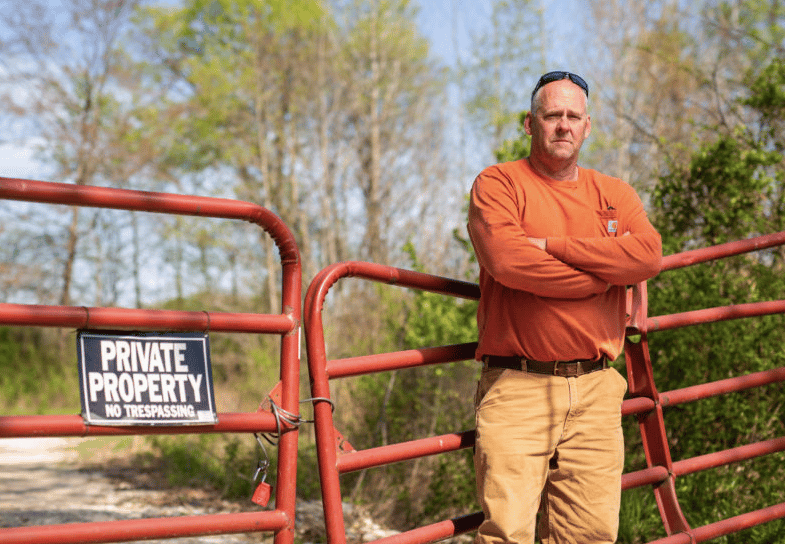Camden, Tenn.—Terry Rainwaters lives, farms and hunts on the 136 acres he owns along the Big Sandy River in rural Tennessee. It’s clear that the farm is private property, with a “no trespassing” sign on the gate. Yet agents of the Tennessee Wildlife Resources Agency (TWRA) ignored that warning, entering his property to set up and retrieve cameras that they used to watch for hunting violations. Now, Terry and another property owner, Hunter Hollingsworth, are teaming up with the Institute for Justice (IJ) to sue the TWRA, asking the court to protect their right—and the rights of all Tennesseans—not to be subject to warrantless searches.
“In America, private land is not open to public officers,” said IJ attorney Joshua Windham. “That’s especially true under the Tennessee Constitution, which requires state officers in every corner of the state, from the city to the country, to get a warrant before searching private property.”
In December 2017, Terry discovered two cameras set up on his farm, one overlooking his field and another pointed toward the back of a house Terry rents out to a long-time tenant. Terry left the cameras in place, and a few days later they were gone. And Terry isn’t the only local landowner to find that they were being watched. His neighbor Hunter similarly discovered cameras and has also encountered a TWRA agent on his land.
“It’s deeply disturbing that I never know whether a state game officer is walking around my land or watching my private activities,” said Terry. “If the state can put cameras on my farm whenever they want, that really destroys the notion that this land is private. And having unannounced visitors walking around our farm during hunting season isn’t just intrusive, it’s dangerous.”
While most Americans would think law enforcement needs a warrant to conduct surveillance, the U.S. Supreme Court held nearly a century ago that the Fourth Amendment does not apply to “open fields.” This misguided doctrine ignores a fundamental point of the Fourth Amendment: to ensure that Americans are secure on their properties. Fortunately, the Tennessee Constitution provides greater protection from unreasonable searches of private property than the Supreme Court says applies under the U.S. Constitution, and the Tennessee Supreme Court has rejected the “open fields” doctrine several times. That’s a good thing, because otherwise most of the private land in Tennessee would receive zero protection from warrantless searches.
“‘No trespassing signs apply to the government too,” said IJ attorney Jaba Tsitsuashvili. “Nobody thinks it’s okay for government agents to set up a tent on your property and watch you day and night. How is installing a camera on your property to do the same thing any different?”
The Institute for Justice is the nation’s leading advocate for property rights. This case is the latest in IJ’s nationwide initiative to secure property owners’ rights against unconstitutional searches. IJ is currently litigating on behalf of property owners and tenants facing unconstitutional home inspections in Illinois, Washington State, Pennsylvania, and Indiana. And in New York, IJ is challenging law enforcement’s coercion of individuals’ waivers of their rights to be free from unconstitutional searches.
Reprinted from the Institute for Justice.































